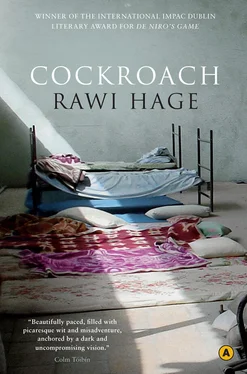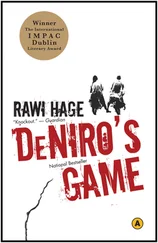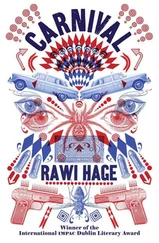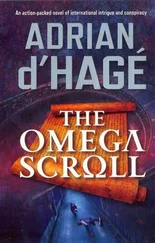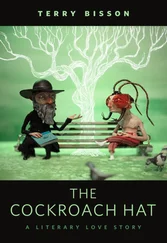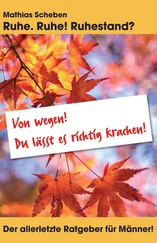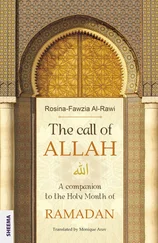I like the way you dance barefoot, I said. Excuse me, I did not mean to scare you, but I saw you dancing without your shoes and it reminded me of dancing gypsies.
Do you know any gypsies? she said.
Yes, my sister is one.
Your sister, but not you?
I can’t dance like her. So I guess I do not qualify as one.
I dance like a gypsy?
Yes. Will you take off your shoes again?
I will.
I wish I was a gypsy like you or like my sister, I said.
Well, you stole my arm like a gypsy, she said, as she slowly pulled away her arm and walked towards her friends. She must have told them about me because they all looked my way. They formed a shield, a circle of human hair balancing on heels. Some of them were barefoot. In the middle of the circle of sweat and flesh that flashed and disappeared through strobes of light I saw those girls laughing, and I felt ashamed to be a hand-thief and a gypsy-lover.
I looked away, and I saw Shohreh’s wide brown eyes watching me. I knew she had seen everything. She turned her head away. I went and sat next to her, and she ignored me. She stood up immediately and went to the bathroom.
Later that night, I walked Shohreh back home. She lived down the hill, towards the train tracks. She told me that she had ambivalent feelings about trains. When a train passed in the evening, she said, it made her sad.
When I asked her why, she held my chin and said, Well, there are some feelings that are only one’s own. Then she ran towards a snowbank and threw snowballs at me.
I chased her and we threw snow at each other. I caught her by the coat and wrestled with her in the snow, both of us breathing hard, our eyes locked onto each other’s. I crucified her wrists and moved my face towards her lips, but she moved her face away and said, Let go. Let go, she repeated, shaking her neck in the snow, dodging her face away from my lips.
I pressed her some more, and she turned and shook her whole body violently. Let go, you bastard. Now!
I still held her, not letting go. When I tried to hold her face between my palms, she liberated one of her hands and scratched my face, cursed me, and threw ice in my eyes. She pushed me into the snow and shouted, You fucking bastard, you fucking bastard, you let me go when I tell you to! And she ran down the hill and disappeared, cursing me in Persian into the cold night.
THE FOLLOWING THURSDAY morning, the sun shone again and I tossed off my quilt. I watched it suspended in the air for a moment before it fell again and joined its own shadow. I searched for my slippers and hurriedly washed my face, brushed my teeth, and covered myself in layers of underwear, cotton shirt, socks, and jacket. There were no cockroaches to be seen today. The brutal temperature must have driven them down south to the boiler room, looking for warmth and comfort. I searched for my shoes, but could not find them. Only one place left for them to hide: I slipped under the bed and crawled across the floor, but found only one shoe. So I took a deep breath and squeezed myself under the dresser to find the other shoe. I laid the pair out on the cold floor and cleaned off the dust I had collected on my body everywhere — even on my chest and eyelashes.
As I walked towards the clinic for my appointment, I was still picking dust off my clothing and my face. I stood outside the window of a clothing store and looked at my reflection, now appearing like a ghost against layers of displayed and suspended cloth. I turned and shifted against the store window and watched my reflection clad in the latest fashionable cuts and colours. I captured the last dustball and held it in my fingers with a mixture of amusement and cruelty. I let it fret against gusts of wind and then released it, watching it leave confused, pain-struck, and disoriented in the whistling air, which sounded like mournful trains and sirens of war howling at the sight of fighter planes that descend and ascend and tumble in the air and land and freeze on the ground like insects with metal wings, like a child’s toys in the bath brought back to the surface by the small hands of an invisible hero or tossed out and hidden under a wooden dresser until they are forgotten and invaded by dustballs, deserted in favour of the call for food and the threats of giant mothers.
When I told the shrink that I had arranged a job interview at a restaurant on Tuesday, she was delighted. She clasped her hands against her chest, her eyes open wide like a mother looking at her child onstage in a kindergarten play, a child dressed as a bee and buzzing around a flower with another child’s face, singing springtime songs.
Tell me more, she said, smiling. That is such wonderful news. It will be such a good step for you to reintegrate into society.
Well, nothing is definite yet, but I feel I would like to work in that place. To start, I know that I would have food to eat, and the under-the-table tips would be good, something to add to my welfare cheque.
You must tell me if you get it. This will be a good step, a very good step in your assessment, she added. Now, where were we on our last session? Yes, here, I wrote a few notes after you left. Your sister. . you were telling me about your sister and her husband, I believe.
Well, I can’t really remember exactly where I left off. Could you read the last few lines for me?
Yes, you felt helpless to defend your sister from her husband’s aggression. What was the man’s name, by the way?
Tony.
Tony, she said. Okay, Tony.
Are you going to write it down, before you forget? I asked.
No, that’s okay. Later. So, tell me more.
Well, doctor. .
Genevieve. Call me Genevieve.
Yes, Genevieve. I feel as if I do not know you and here you are, asking everything about me. But who are you? I mean, you are silent most of the time. You remind me of priests in the confession booth. Nodding all the time, and then telling us to go kneel and mumble a few prayers for a virgin, and one for a man with a beard. You know?
Did the priests hit you?
Well, of course. Sometimes.
Did they do anything else?
Like what?
Like maybe asking you for something or touching you?
No, not that I remember.
Okay. So, your sister?
Well, my mother went to the hospital for the delivery of my sister’s baby. This was the first time my mother met Tony.
Yes, Tony. The shrink wrote the name down this time.
Tony, I said. He was in the room when my mother came in. He was smoking next to the window. And my mother, the first thing she said to him was to go smoke outside.
He hid his cigarette behind his back and extended his arm to my mother, and when she ignored him, he smiled at me to show her what good terms he was on with me. Then he walked outside the room and smoked in the hallway with the rest of the fathers.
Was your father there?
No.
He did not come?
No.
Okay, go on.
Well, my sister had a girl. And Tony wanted a boy to shoot guns with. My sister called her Mona.
What kind of work did Tony do?
I’m not sure, really. He joined the militia at one point and he would disappear for a few days every now and then, and then he’d come back. At first, when he made money, I suspected it was because he was in charge of some kind of racketeering. People feared him because he was allied with the people in power. He always had guns.
How did your sister feel about that, guns with a baby in the house?
With a baby in the house? The baby does not understand about guns. What would the baby care?
Yes, but. .
Maybe what my sister wanted was a fighter. Maybe she wanted to bring a fighter into this world.
Nietzsche!
What?
Nothing. Go on, please.
Well yes, things are different there. Some people had guns over there at the time.
Читать дальше
